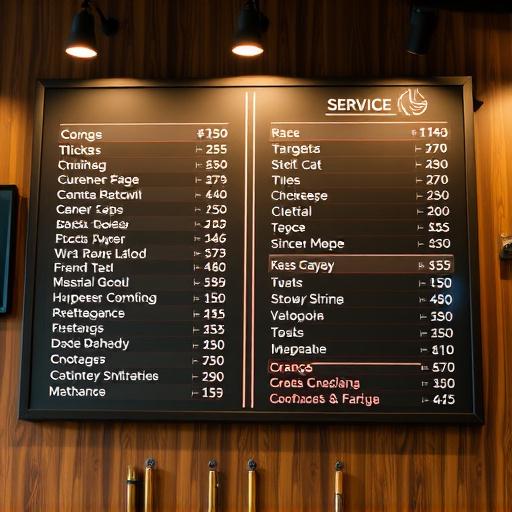Optimal vehicle performance requires adhering to the Airaid filter replacement schedule, which varies based on driving habits, environmental conditions, and usage (every 20,000-30,000 miles or annually). Regular checks enhance fuel economy, engine performance, and vehicle lifespan. Adhering to recommended intervals through proper maintenance practices extends the life of performance parts. Efficient Airaid filter replacements involve tracking schedules, inspecting filters, precise installation, and storing spare filters cleanly and dryly. Prompt issue addressing contributes to engine longevity for smooth, efficient operation.
Maintaining optimal performance in your vehicle’s engine is crucial, and a key aspect of this is regular Airaid filter replacement. This article explores the essential topic of the Airaid filter replacement schedule and its impact on overall engine health. We’ll guide you through understanding the timeline, uncovering factors that influence maintenance intervals, and providing best practices for efficient Airaid filter maintenance to ensure your vehicle runs smoothly.
- Understanding Airaid Filter Replacement Schedule
- Factors Affecting Performance Maintenance Timeline
- Best Practices for Efficient Airaid Filter Maintenance
Understanding Airaid Filter Replacement Schedule

Maintaining optimal vehicle performance involves adhering to specific maintenance timelines, and one crucial component is the Airaid filter replacement schedule. These filters play a vital role in ensuring your engine receives clean air, enhancing overall efficiency and power output. The recommended interval for replacing Airaid filters varies depending on several factors, including driving habits, environmental conditions, and vehicle usage.
Generally, it’s advised to replace these filters every 20,000 to 30,000 miles or once a year, whichever comes first. However, in areas with poor air quality or extreme climates, more frequent replacements might be necessary. Regularly checking the filter’s condition and following the Airaid filter replacement schedule will contribute to better fuel economy, improved engine performance, and longer service life for your vehicle.
Factors Affecting Performance Maintenance Timeline

Performance maintenance timelines can vary greatly depending on several factors, especially in vehicles equipped with advanced systems like Airaid filters. One key influencer is the environment in which the vehicle operates. Extreme temperatures, both hot and cold, can affect the efficiency of air intake systems, leading to more frequent replacement schedules compared to milder climates.
Another significant factor is driving habits. Aggressive driving styles, including rapid acceleration and hard braking, generate more wear and tear on components, resulting in a shorter maintenance timeline. Conversely, regular maintenance practices, such as adhering to recommended Airaid filter replacement intervals, can extend the lifespan of the vehicle’s performance parts, delaying the need for extensive repairs or replacements.
Best Practices for Efficient Airaid Filter Maintenance

Maintaining your vehicle’s air filter, such as the Airaid filter, is crucial for optimal performance and fuel efficiency. Following a regular replacement schedule is key; most experts recommend changing it every 15,000 to 30,000 miles or once a year, whichever comes first. Regular maintenance ensures your engine receives a consistent supply of clean air, enhancing combustion and reducing wear on vital components.
To make Airaid filter replacement efficient, consider these best practices: keep track of the recommended maintenance schedule for your vehicle; inspect the filter regularly for signs of damage or debris buildup; ensure proper installation by following the manufacturer’s instructions; and store spare filters in a clean, dry place to avoid contamination until needed. Promptly addressing any issues with your air filter will contribute to the overall health of your engine, ensuring your vehicle continues to run smoothly and efficiently.
Maintaining optimal performance of your vehicle’s air intake system is crucial for efficiency and engine health. By understanding the Airaid filter replacement schedule, considering factors affecting timeline, and adopting best practices, you can ensure your vehicle receives clean air efficiently. Regular, timely Airaid filter maintenance is a key component in keeping your engine running smoothly, maximizing fuel economy, and preventing costly repairs down the line.














